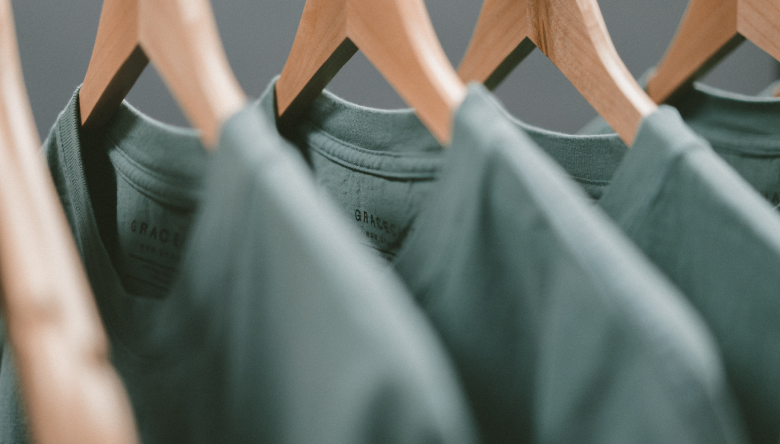Let’s take a look at a product called Nuuly, launched by the URBN group (think retail stores like Urban Outfitters).
We’re going to cover:
✅ Why they’re launching the product
✅ Whether it’s a good idea
✅ The risks they need to address
Introducing Nuuly
Nuuly is a thrifting (selling second-hand clothes) and rental subscription service that operates within the URBN group.
The platform offers customers the opportunity to rent or buy pre-loved and one-of-a-kind clothing items via a digital platform.
And the clothing rental market is booming.

Nuuly plans to appeal to a younger generation of customers seeking a sustainable way of shopping.
This movement has been gaining traction because 17 million tons of clothing go to waste per year.
Clothing waste became responsible for 10% of the global population’s carbon emissions and contributes to dried-up and polluted water and land areas.
And, of course, consumers want great clothes without the capital outlay!
- Helps the environment
- Makes users look great
- Save users money
But first, who is the URBN Group?
The URBN Group
🔎 Seven brands
🔎 95% of net sales in retail at 645 locations
🔎 In 2019 launched Nuuly
The URBN group is a lifestyle and fashion brand founded in 1970. Since then it has grown from one clothing label to a company that owns seven major brands.
The URBN group is focused on creating a unique retail experience for their customers with their creativity and brand experimentation.
They are also looking to diversify – which brings us back to Nuuly.
Nuuly – the details
Nuuly has around 30,000 subscribers paying $88 per month ($31.6m yearly sales).
With this fee, users get to hand-pick six items that they can rent for the month. When the month is up, you have the option to return the pieces or keep what you like at a discounted price.
The company also launched a pre-owned section called Thrift – this is a marketplace where users can sell pre-owned items for Nuuly cash (redeemable in URBN stores).
So, does the concept have longevity?
Unique advantages
URBN has a few advantages that give this corporate innovation project a big headstart.
Consumer insights – the group already has a ton of data on consumers which they can leverage to make the rental products aligned with what customers want.
Infrastructure – Distribution and manufacturing are covered so the nuts and bolts of running this are already in place.
Cash – You need lots of $$$$ for inventory, logistics and marketing (Rent the Runway needed $526m).
Route to market – The company had stores, followers, and PR contacts to get the brand out there fast.
The biggest win here could be the infrastructure URBN has in place to execute this model.
We spoke to Rebecca Griffiths, one of our MOHARA portfolio founders, about how URBN has leveraged its existing infrastructure to deliver this product.
- Warehousing – owning physical locations required to pull off this model is key. They’ll likely create new sections in the warehouse for this model but just having the space ready to go is a big advantage.
- Delivery – URBN will likely have deals in place with couriers that can absorb this new demand. This will mean lower costs per transaction and fewer issues.
- Market – the space is very hot right now. Rental and thrift are both going to grow a ton so URBN is in a great market.
Ben Blomerley, our COO and MOHARA Co-Founder, is cautious.
The Nuuly bet makes sense for URBN.
The circular economy will keep growing and if Nuuly gets the product-market fit right they’re going to have a strong offering.
But it won’t be easy – the market will be flooded with thrift and rental businesses. There will be a ton of niche players and some really well-funded startups.
Nuuly can’t just rely on the growing market and existing infrastructure.
This will be table stakes over the next five years. The winners in this emerging industry will understand its users and give them what they need. It will require:
- Great product
- Incredible service
- World-class CX
But, I’d rather be in the right market with a ton of competition than the wrong market.
The final word – does this bet make sense?
MOHARA CEO, Richard Sams, gives his view.
I like it when the market is there – it covers up early problems. There is no adoption risk so you’re playing the execution game.
But there are so many points where the CX can break down. From bad clothes to delays, to poor tech.
For Nuuly to win they’ll need to really focus on the customer.
They need to get close to the users, listen to feedback and keep iterating. These subscription businesses are notorious for churn – pointing to misalignment between reality and user expectations.
I can see a ton of users trying other options or churning after a few months unless the product is exceptional – Nuuly needs to obsess over customer experience to drive retention.
In this space innovation will be huge in the next five years so what works today won’t work in 2028 – so Nuuly also has to keep improving to win.
In Case You Missed It
- Coachella has released its first NFT collection: Here’s how you can get it.
- Experience multi-disciplinary innovation with Adidas’ shoes from the future.
- The future is digital – so is fashion. It is time you learn how to expand your digital wardrobe.
- Snapchat is using AR technology to enable users to create 3D assets, further investing in the potential of AR shopping.
- Kim Kardashian rent a dress for the Met Gala – what’s stopping you from entering the world of fashion rentals?
Here are some related companies that MOHARA is currently working with, also forming part of our investment portfolio:
Thanks to Rebecca Griffiths of Primis for her insights. Primis is a customer experience-focused enterprise delivering pre- and post-purchase SaaS solutions to online retailers. What makes Primis different is its focus on loyalty programs and sustainability during the delivery and return process. Its mission is to improve the open interactions between the consumer and retailer to improve post-purchase customer experiences in a way that transforms how consumers think, react and buy online. The goal is to not only promote final-mile communication but to build lasting customer relationships.
Bidstitch is an eCommerce marketplace that was created as a destination for users to buy and sell vintage apparel. Bidstitch launched its site in August of 2021 and since then had over 10,000 live listings on the platform.
With competitors like Depop, eBay, Etsy and Grailed, Bidstitch sets itself apart from its competition with its subscription model. Bidstitch aims to charge their sellers a monthly fee, where they will have unlimited access to the marketplace and can list an unlimited number of items on their page, with no additional charge.











